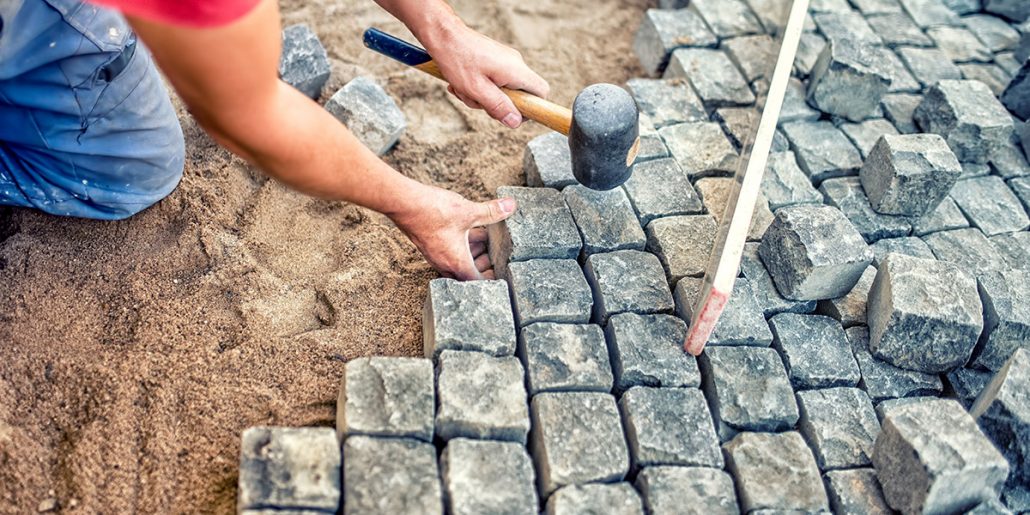Chimney Flashing and Cap Repair: Safeguard Your Home from Components
Chimney Flashing and Cap Repair: Safeguard Your Home from Components
Blog Article
Opening the Tricks of Sustainable Stonework Building And Construction Practices for Eco-Friendly Buildings
In the realm of modern building, the pursuit of lasting practices has actually become critical. Amongst the myriad approaches to environmentally friendly building, sustainable stonework construction stands apart as a reliable and long lasting approach that holds a wide range of untapped possibility. From the selection of products to cutting-edge construction strategies, the secrets to achieving sustainability within masonry building are multifaceted and interesting. By checking out the advantages, products, techniques, and future trends of lasting masonry, a much deeper understanding of just how these practices can shape the future of green structures arises.
Benefits of Lasting Masonry Construction
Accepting sustainable stonework construction practices not only reduces environmental influence but likewise supplies lasting financial advantages to builders and neighborhoods. By making use of materials like recycled blocks, obstructs, and stones, building contractors can significantly lower the carbon impact of their projects while promoting source effectiveness. Additionally, lasting masonry building techniques, such as proper insulation and thermal mass residential properties, can enhance energy efficiency within structures, bring about decreased operational costs in time.
Furthermore, the resilience and durability of stonework structures add to lasting economic benefits. Buildings built utilizing sustainable stonework techniques often require much less repair and maintenance, translating to set you back savings for home builders and residential property owners. The durability of masonry materials additionally ensures that structures remain stable and safe and secure, lowering the need for frequent renovations or substitutes.
Eco-Friendly Stonework Materials
Using environmentally friendly stonework materials is a crucial step towards boosting the sustainability of construction techniques and decreasing ecological impact while taking full advantage of lasting financial advantages. Sustainable masonry products are sourced, created, and used in a manner that lowers total ecological impact. Lasting concrete blocks incorporate recycled aggregates and might include enhanced insulation buildings, contributing to energy effectiveness in structures.
Moreover, all-natural products like adobe, rammed earth, and straw bundles give excellent thermal mass homes, decreasing the requirement for home heating and cooling power. These materials are commonly locally offered, advertising regional economies and minimizing transportation-related carbon emissions. By choosing environmentally friendly masonry materials, building and construction projects can substantially decrease their ecological impact and add to the production of much healthier, much more sustainable constructed environments.
Energy-Efficient Masonry Strategies
Energy performance plays a crucial function in boosting the sustainability of stonework construction techniques. By applying energy-efficient stonework techniques, builders can dramatically lower the general power intake of a structure, causing reduced functional prices and a smaller sized ecological impact. One essential energy-efficient stonework method is using thermal mass, which entails incorporating dense products like concrete or block into the building's structure to absorb and keep warm. This aids control interior temperatures, decreasing the requirement for mechanical home heating and cooling systems.

Developments in Lasting Masonry
Current developments in lasting stonework techniques have actually brought around cutting-edge techniques that are improving the building and construction market. One such technology is the advancement of self-healing concrete, which makes use of bacteria installed within the concrete to recover cracks autonomously. This development not just lowers maintenance prices however additionally improves the resilience of masonry structures, adding to their sustainability.
An additional noteworthy technology is using recycled accumulations in masonry building and construction - masonry contractor. By including products such as crushed ceramic waste or recycled glass into concrete mixes, builders can reduce the environmental effect of building projects while keeping structural stability. This practice not just draws away waste from landfills yet also conserves natural deposits, making it a crucial improvement in sustainable stonework construction
Furthermore, the integration of electronic design devices, such as Structure Information Modeling (BIM), is revolutionizing the way masonry frameworks are intended and constructed. BIM enables even more accurate calculations, minimized product wastefulness, and enhanced energy efficiency, inevitably resulting in more lasting building techniques. These advancements collectively symbolize an encouraging future for sustainable masonry building and construction in the age of environment-friendly buildings.
Future Trends in Stonework Sustainability
With the cutting-edge strides made in lasting stonework techniques, the future trends in masonry sustainability are poised to additional reinvent the building industry. Among the vital patterns shaping the future of masonry sustainability is the enhanced integration of innovation. Innovations such as Structure Info Modeling (BIM) and online reality simulations are being used to maximize masonry construction processes, bring about lowered material waste and boosted energy performance in buildings.
Moreover, the development of novel lasting materials is readied to play a substantial role in boosting the eco-friendliness of stonework building and construction. masonry contractor. Innovations like self-healing concrete, recycled aggregates, and bio-based binders are obtaining traction for their ability to lessen environmental influence while maintaining structural integrity

Conclusion
In final thought, sustainable stonework construction techniques provide many advantages for green structures. masonry contractor. Advancements in sustainable stonework are continuously being developed to additionally enhance the environmental performance of buildings.
Report this page